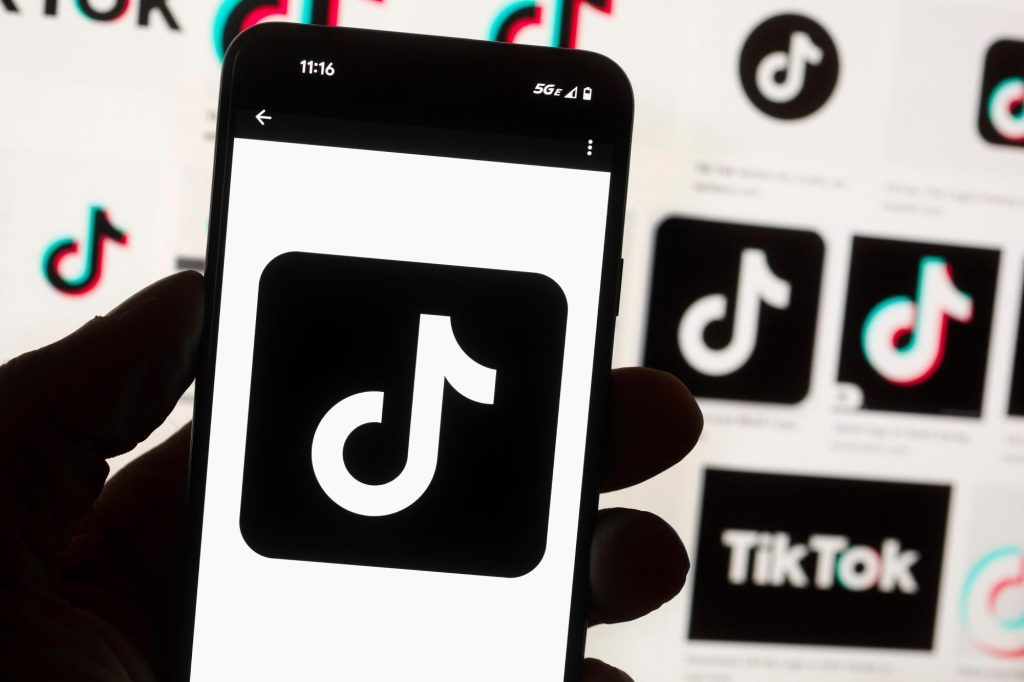By MICHELLE CHAPMAN (AP Business Writer)
TikTok will start labeling content that is created using artificial intelligence when it's uploaded from outside its platform.
TikTok states that it is trying to stop the spread of false information on its social media platform.
The company mentioned that AI opens up great creative possibilities, but can confuse or mislead viewers. The labeling helps make the context clear, which is why they label AI-generated content created with TikTok's effects.
The move is part of an overall effort by the technology industry to provide more safeguards for AI usage. Meta They announced that they were working with industry partners on technical standards to make it easier to identify images and eventually videos. and audio Efforts would include Facebook and Instagram users seeing labels on AI-generated images on their social media feeds.
Google announced last year that AI labels are coming to YouTube and its other platforms.
A push for digital watermarking and labeling of AI-generated content was also part of an executive order that U.S. President Joe Biden signed in October. TikTok said it's teaming up with the Coalition for Content Provenance and Authenticity and will use their Content Credentials technology..
The company stated that the technology can attach metadata to content, which it can use to instantly recognize and label AI-generated content.
The technology has been implemented on images and videos, and will soon be applied to audio-only content.
In the upcoming months, Content Credentials will be attached to content made on TikTok, even when downloaded, to help identify AI-generated content and provide information about its creation/editing.
TikTok mentioned that it's the first video-sharing platform to practice Content Credentials. It will also join the Adobe-led Content Authenticity Initiative to encourage the adoption of the credentials within the industry.
Dana Rao, Adobe’s executive vice president, general counsel, and chief trust officer, said in a blog post that TikTok is the first social media platform to support Content Credentials, and with over 140 million users in the United States alone, their platform and their vast community of creators and users are an essential piece of that chain of trust needed to increase transparency online.
TikTok's policy in the past has been to encourage users to label content that has been generated or significantly edited by AI. It also requires users to label all AI-generated content where it contains realistic images, audio, and video.
Adam Presser, TikTok’s Head of Operations & Trust and Safety told ABC News, “Our users and our creators are so excited about AI and what it can do for their creativity and their ability to connect with audiences. And at the same time, we want to make sure that people have that ability to understand what fact is and what is fiction.”
The announcement was first made on ABC's “Good Morning America” on Thursday.
TikTok's AI actions follow TikTok's statement just two days ago that it and its Chinese parent company, ByteDance, had filed a lawsuit against a new American law that would ban the video-sharing app in the U.S. unless it’s sold to an approved buyer. They claim the law unfairly targets the platform and is a severe attack on free speech.
The lawsuit is the latest development in the ongoing legal battle over TikTok’s future in the United States, which may ultimately reach the Supreme Court. If TikTok loses, it says it would have to shut down next year. TikTok plans to begin automatically categorizing content made by artificial intelligence when it's uploaded from specific platforms. TikTok hopes this will help prevent the spread of misinformation on its social media platform. Previously, TikTok encouraged users to label AI-generated or heavily edited content. It also required users to label all AI-generated content containing realistic images, audio, and video. over TikTok’s future in the United States — and one that could end up before the Supreme Court. If TikTok loses, it says it would be forced to shut down next year.









